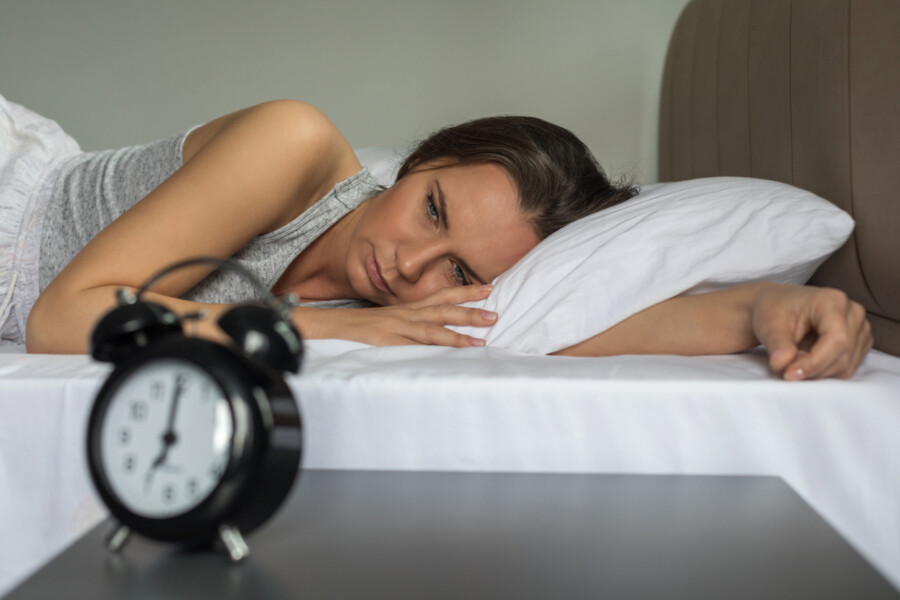Are Your Varicose Veins Affecting Your Sleep?

Having trouble falling asleep? It could be due to varicose veins.
For most people with varicose veins, the blue-purple veins are just a cosmetic concern. However, for many others, varicose veins present nighttime symptoms that make it nearly impossible to get a restful night of sleep.
Itching, swelling, and cramps are common symptoms of varicose veins, a venous disorder that ultimately leads to protruding blue and purple lines on the legs. If you’re one of the up to 35 percent of people in the U.S. with varicose veins, you may be losing sleep because of the persistent symptoms which seem to intensify at night.
During the day, as pressure builds in the veins, you probably don’t notice the symptoms because you’re busy. When you get home, the pressure and discomfort may diminish somewhat — but not enough to let you fall asleep. Yet there are methods — both surgical and nonsurgical — that can alleviate the symptoms and help you enjoy much-needed rest.
Varicose Veins Keeping You Up at Night?
As if varicose veins alone aren’t enough to disturb your sleep, the malfunctioning veins have been linked to a similar disorder, restless leg syndrome (RLS), that shares many of the same symptoms.
About 10 percent of the U.S. population suffers from RLS, according to the National Sleep Foundation. RLS patients often complain of intense itching, involuntary twitches, and “pins-and-needles” sensations when they try to sleep. They move their legs constantly as they recline in bed in an effort to stop the symptoms, but to no avail.
Several studies done over the past 20 years have documented a strong connection between varicose veins and RLS. A 1995 study published in Dermatologic Surgery found that 98 percent of the 113 RLS patients treated with sclerotherapy — a common therapy for varicose veins — reported an initial reduction in symptoms. Similarly, a 2007 study published in Phlebology determined that nearly all of the 174 RLS subjects were also diagnosed with chronic venous disorders.
Although varicose veins could be one cause of RLS, kidney disease, anemia, and peripheral neuropathy (a nerve disorder that causes pain and loss of control over muscles) have also been associated with RLS. RLS has been traced to certain medications (antidepressants, antihistamines, and anti-nausea drugs) and heredity, as well.
Therefore, if you have trouble sleeping at night because of leg discomfort, you should get a thorough evaluation by a doctor to pinpoint the exact cause. Even if you don’t see any visible signs of varicose veins, you may still have the condition; that’s because the affected vein may be hidden deep in the leg, where it can only be detected with an ultrasound exam. If it’s discovered the underlying factor is venous insufficiency, you can explore several treatment methods with a vein specialist.
As mentioned previously, sclerotherapy — a minimally invasive procedure during which a solution is injected into the vein to cut off its blood supply — is often prescribed to treat varicose veins in combination with other treatment methods. Other procedures use heat to collapse the impaired vein so blood is diverted to nearby healthy veins.
While surgical intervention is the only way to completely banish varicose veins, you can minimize the symptoms before your head hits the pillow. Elevate your legs above your heart to prevent blood from pooling in the veins so the blood moves upward to the chest. Gentle exercises like walking or stretching encourage circulation and lessen the symptoms just in time for a relaxing slumber.
Get the Rest You Need by Treating Your Varicose Veins
At the Center for Vein Restoration, we’re experts in varicose vein diagnosis and treatments. Varicose veins shouldn’t prevent you from getting the nightly rest you need. We can discuss your symptoms, determine whether your nighttime restlessness if caused by varicose veins, and recommend treatment options. Schedule your appointment today.